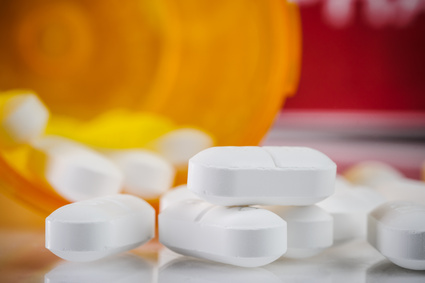- Calls to this hotline are currently being directed to Within Health, Fay or Eating Disorder Solutions
- Representatives are standing by 24/7 to help answer your questions
- All calls are confidential and HIPAA compliant
- There is no obligation or cost to call
- Eating Disorder Hope does not receive any commissions or fees dependent upon which provider you select
- Additional treatment providers are located on our directory or samhsa.gov
Pharmacotherapy as a Treatment for Bulimia Nervosa

Contributor: Crystal Karges, MS, RDN, IBCLC Special Projects Coordinator at Eating Disorder Hope
Pharmacotherapy is the treatment of a disease state with the use of medications. Because bulimia nervosa is a complex mental illness, the treatment of this eating disorder is often multi-disciplinary and involves several treatment approaches. This might include pharmacotherapy as well as medical nutrition therapy, psychotherapy, and medical stabilization.
While medications may be a helpful part of the treatment for bulimia, it cannot be used alone to aide the recovery from this eating disorder. Pharmacotherapy is typically administered and monitored by a pharmacist, medical doctor, and/or psychiatrist, who is specifically trained in medication management and dosing.
Treating the Underlying Mental Health Conditions of Bulimia
Because bulimia nervosa often occurs with other mood disorders, such as depression and/or anxiety, medication is often administered for the management of these mental illnesses. For some individuals who suffer with bulimia, effectively managing co-occurring anxiety and depression can be helpful in decreasing overall urges to binge and purge. While there is no exact medication to treat bulimia itself per say, there are medications that can help decrease the symptoms of bulimia.
Currently, the only medication that has been approved by the Food and Drug Administration (FDA) for the treatment of bulimia is fluoxetine, otherwise known as Prozac. Prozac is an antidepressant that is helpful for decreasing the symptoms of bulimia, such as depression, or urges to binge and purge. However, this medication does not cure bulimia, and side effects may result from taking this prescription medication.
Discussing Pharmacotherapy with a Health Professional
 If you are suffering with bulimia nervosa and are considering the use of medication in your treatment, it is important to discuss this with your health professionals to determine what is appropriate for you. As with any medication, dosing should be managed and overseen by the prescribing doctor.
If you are suffering with bulimia nervosa and are considering the use of medication in your treatment, it is important to discuss this with your health professionals to determine what is appropriate for you. As with any medication, dosing should be managed and overseen by the prescribing doctor.
If you do start on a prescription medication, you will likely need to follow up with your doctor periodically, as your health care provider can determine how effective the medication is and whether or not any adjustments need to be made.
When used in combination with other therapeutic measures, pharmacotherapy can be a helpful and effective part of treatment for and recovery from bulimia nervosa.
Community Discussion – Share your thoughts here!
What has been your experience with pharmacotherapy in your recovery from bulimia? How has medication helped you progress in healing and recovery?
Last Updated & Reviewed By: Jacquelyn Ekern, MS, LPC on June 11th, 2015
Published on EatingDisorderHope.com

The EatingDisorderHope.com editorial team comprises experienced writers, editors, and medical reviewers specializing in eating disorders, treatment, and mental and behavioral health.

